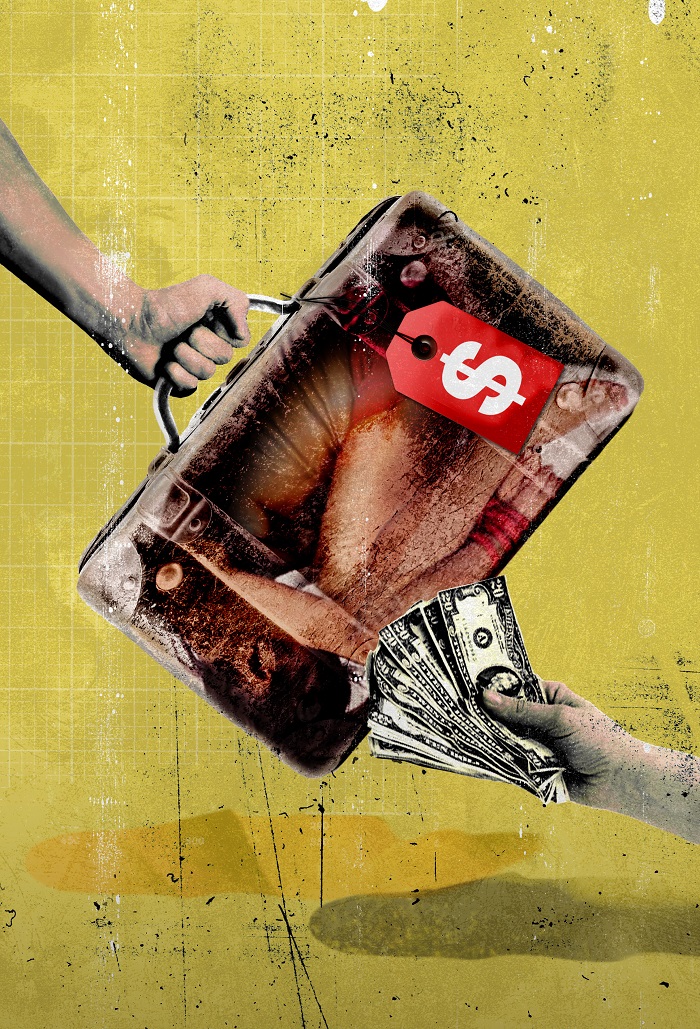
Does human trafficking occur in Utah? According to Mary Ellis, Human Trafficking Intelligence Analyst for the Utah Department of Public Safety, it is a growing problem. “The exact numbers are hard to come by,” she explains, “but it is a growing issue. Think about it this way. Globally, 20 million people are trafficked in labor or sex, with several million in the United States. Many cases go unreported, so it is hard to say firm numbers, but the problem here is serious and growing.”
Human Trafficking, by definition, is the use of force, fraud, or coercion to obtain labor or commercial sex services from adults and sometimes even children.
According to Ellis, when someone is forced into labor trafficking, they are not paid, or are paid very little for the work they perform. There is no medical care or job security. Generally, a person is forced into a subservient situation without the freedom to leave. Often, they or their families are threatened if they don’t perform.
Some businesses that use trafficked labor include restaurants, motels and hotels, industries making clothing, or other items for sale.
Many laborers are brought in from outside of the United States with promises of a job that never materializes. In other cases, they may take a forced-labor job to stay in the country.
The other side of human trafficking is the commercial sex trade. Ellis says that these workers are found in the massage parlor business—providing services that end with some type of sexual encounter, including escort services and working as street prostitutes.
Normally, people in these types of lifestyles are runaways. Others have a low economic status and perform commercial sex acts to survive and provide shelter, food, and money. As Ellis explains, “Many in this line of work were abused at some point in their lives, either physically or sexually, or they are possibly drug dependent.”
The statistics are frightening for runaways. Within 48 hours, most runaways are contacted by someone to coerce them into the commercial sex trade.
But recruiters don’t just wait for runaways. Social media plays a big part in recruitment, and according to Ellis, anyone can be targeted without regard to age, gender, race, or ethnicity. “There is no profile for a victim,” she says.
Ellis’s job as an intelligence analyst is to collect intelligence throughout the state regarding human trafficking trends and tactics used by law enforcement to deal with the crimes. She also disseminates information to police departments throughout the state and provides case by case support.
Each year, local agencies participate in an FBI program called Operation Cross Country—a concentrated effort to shut down traffickers and rescue victims. This year, the four-day operation, held October 12-15, resulted in the recovery of 84 minors and the arrest of 120 traffickers nationwide. There was one arrest in Utah of a man accused of trafficking and exploitation. The FBI and local agencies also contacted and offered help to seven prostitutes.
There is an ongoing effort to stop trafficking year-round, but Operation Cross Country is a concentrated nationwide effort to bring the practice to a halt.
How can parents keep their children safe?
Ellis emphasized that “Education is the key, and it really does start in the home with parents talking to kids openly about what trafficking is. It is a scary topic to discuss with kids, but education can introduce a number of topics.”
She went on to say that parents need to monitor their children’s social media, knowing how much access they have, what type of applications, and if they are having conversations that are sexual in nature. She also urged parents to “know their child. Notice changes. Are they running away, skipping school, wearing sexualized clothing, or dating someone older? If behavior isn’t normal, ask questions such as, ‘Why is this happening? Who is this person they are talking to?’”
Ellis says that citizens are the eyes and ears of law enforcement. She urges anyone who sees signs of forced labor or sex trafficking to report it. “Don’t dismiss the idea of trafficking because we are in Utah, because it does happen here.”
If you see something suspicious, there are several places to contact, starting with SIAC (the Statewide Information and Analysis Center). You can also contact the National Human Trafficking Hotline at 1-888-373-7888, any local law enforcement agency, or the FBI.

